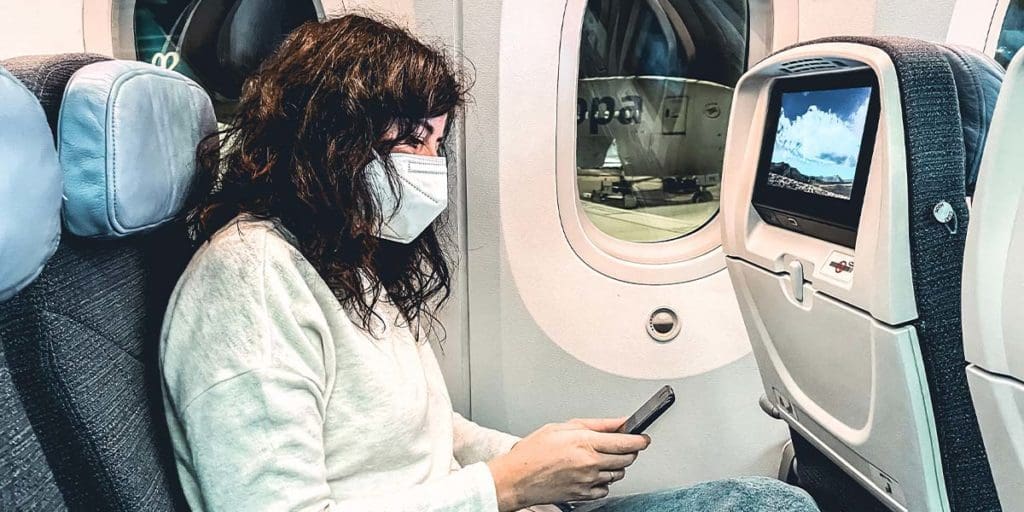
If you’re someone who has traveled during COVID, you may have run into some unexpected problems. Maybe you tried to travel and didn’t realize that you needed to show proof of a negative COVID test, or worse, maybe you traveled internationally and didn’t realize that you had to quarantine on arrival. It’s essential that you know the current travel guidelines for your travel destination so that you can have peace of mind during your next trip.
What Are the Center for Disease Control’s (CDC’s) Current Travel Guidelines?
If you plan on traveling, there are some guidelines from the CDC that you’ll need to follow. The first guideline is that travelers entering the United States from an international destination must show proof of a negative COVID test taken within one day of traveling to the United States. Another guideline you’ll need to follow is that you should not travel if you are sick, have tested positive for COVID-19, have been in close contact with someone who has tested positive for COVID-19, or if you are waiting for COVID-19 test results. If you plan on traveling domestically or internationally on an airplane, note that you will have to wear a mask throughout your flight.
What Are the Different Travel Restrictions By Country?
Travel rules and restrictions vary by country and based on where you’re traveling to, you may have to show proof of being fully vaccinated, show proof of a negative COVID test, or in some cases, you may have to quarantine. You should do some research ahead of time on the country you plan on traveling to. This way, you’ll have peace of mind knowing what restrictions you’ll have to follow while you are away. You can see a complete list of rules and restrictions by country here.
Are There Travel Restrictions For Specific U.S. States?
Though most states do not have state-wide travel restrictions, there are a few destinations that have implemented travel restrictions that you’ll want to be aware of before visiting:
- California: Indoor events with more than 1,000 people require attendees to show proof of vaccination.
- Hawaii: Those who aren’t fully vaccinated must show proof of a negative COVID test and must also quarantine.
- Maine: If you are arriving from a nonexempt state, you must fill out a travel protocol form and quarantine for ten days.
Besides the travel restrictions listed above, some venues around the country require you to show proof of vaccination or a negative COVID test before entering. Please check the rules and restrictions of your travel destination ahead of time so that you don’t run into any roadblocks during your trip.
Do I Need To Get Tested For COVID-19 Before Traveling?
Depending on where you are traveling, you may need to get tested for COVID-19 before traveling. Many international destinations require you to show proof of a negative COVID test to enter. If you are out of the country and are looking to return to the United States, you will need to provide proof of a negative COVID test taken no more than one day before you travel by air, regardless of vaccination status. You will need to show proof of a negative test to the airline before boarding your plane.
Can I Travel During The COVID-19 Pandemic If I Am Not Fully Vaccinated?
Though some international destinations allow visitors who aren’t fully vaccinated to visit, there are a lot of destinations that require you to be vaccinated before visiting. This differs from destination to destination, but many international destinations require that you are either fully vaccinated or that you provide proof of a negative COVID test. As of January 31, 2022, some countries that are allowing visitors who are not fully vaccinated include:
- Croatia
- Cyprus
- Greece
- Ireland
- Maldives
- Mexico
- Portugal and Madeira
- Slovenia
- Turkey
- United Arab Emirates
When it comes to domestic travel, as a U.S. citizen, you can fly throughout the country without showing proof of vaccination. However, certain venues and events across the United States require that visitors show proof of being fully vaccinated before entering. Be sure to research your travel destination to ensure that you are aware of all the rules and restrictions in place.
You can see a full list of rules and restrictions by country here.
Should I Get Travel Insurance?
Right now, the state of travel is ever-changing. This is why if you have an upcoming trip, the absolute best way to protect yourself and have peace of mind is by purchasing travel insurance. If you book a trip and end up not being able to go, travel insurance can help ensure that you don’t lose all of your money.
If you need a passport for an upcoming trip, you can obtain your new passport or passport renewal in 7-10 business days when you choose to acquire your passport with Swift. Please note that you must call ahead (312-929-2105) if you want to use our 7-10 business days option, as it’s being offered on a first-come-first-serve basis.
